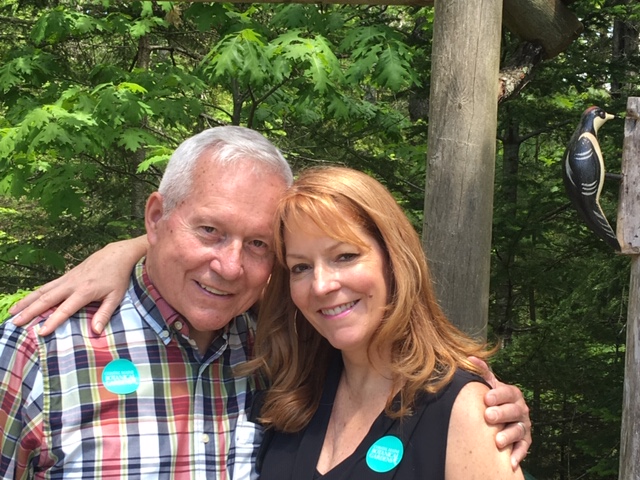By Jason Epps, CFP®, CRPC®
Owning real estate is one of the most attractive investments as it provides owners with a steady stream of income and it’s considered “passive.” As a rental property owner, you have likely figured out that being a landlord is anything but passive. The buildings need constant maintenance, grounds must be monitored, and there are always going to be repairs done on fixtures and plumbing. After insurance and taxes are paid, you may realize that the amount of time, effort, and money poured into your rental property does not always outweigh the financial benefits.
If you are on the fence about whether to sell or hold on to a property, consider the following factors before making any decisions.
Renter Reliability
How your rental property is treated and maintained over time will determine how much work and maintenance expenses must go into it. This is largely determined by the people who occupy your home day in and day out. If your renters are inclined to clean up after themselves, notify you immediately of needed repairs, and keep up the overall premises, then the amount of property maintenance will remain minimal. However, if you have renters who do not clean up after themselves or are at risk of causing major damage, then that could cost you a lot of time and money.
Look back at your last several renters and see if you can detect any patterns. Do you tend to attract reliable renters, and has the amount of work and maintenance required from you been easy and light? Or have you been prone to finding renters who turn out to be destructive, and disappointing in the end, and is your wallet proof of this?
What Is Your Real Return on Investment (ROI)?
Just because your renters cut you a check every month does not mean that every dollar you get goes straight into your bank account. Many expenses come with property ownership, and it’s important to take them all into account so you can figure out what your true ROI is. Take your monthly rental income and subtract mortgage payments, property insurance, HOA fees, any maintenance or repair expenses, management company fees, and anything else that was spent on your property that month. Next, incorporate the impact of the equity in your property increasing (through paying down principal as well as the property’s appreciation) to the calculation. This will help clarify whether this investment is generating a satisfactory return on investment. Repeat this for the last 12 months to get an estimated monthly average over a full-year cycle. Once you have these numbers, you can determine whether or not you’re making money, and if that amount is satisfactory for the amount of responsibility and time you put into it.
Do the Tax Benefits Still Make Sense?
As a rental property owner, you have access to a set of unique tax benefits provided by the Internal Revenue Service (IRS). For instance, you have the opportunity to deduct your mortgage interest payments, your property tax insurance, any HOA fees, repair and maintenance expenses, and advertising expenses to recruit tenants. There is even a special category called “depreciation” where rental property owners can deduct the estimated annual “wear and tear” of their property. (1) In order to determine whether or not you should keep your rental property, it helps to consider how much you’re saving on taxes in addition to your monthly rental income after expenses. However, if you cannot utilize many of the tax benefits, or the numbers don’t add up, then keeping your rental property may not make sense for you financially.
Booming Housing Market
Because of the unique circumstances surrounding the COVID-19 pandemic, now may be a great time to sell a home. Supply-chain issues have made it difficult for homes to get built in the last few years, which has curbed the construction of new homes. A limited supply of homes means there is fierce competition between buyers. This imbalance between supply and demand has caused home values in the U.S. to skyrocket in the last two years. Although home appreciation is starting to slow down, (2) we are still in a seller’s market, which means selling your property to cash in on the appreciation of the last few years could be something worth considering.
Is it Worth It?
Your time, energy, and money are precious and finite resources that should always be put to good use. If you find that your rental property is giving you the desired boost in income without impeding on your well-being, definitely consider keeping the property. However, if your property isn’t yielding the results you would like and is causing you stress or headaches, it may be time to consider other investment options.
Remember that you do not need to make this decision on your own. To help you feel secure in your choice, we at KFA Private Wealth Group would be more than happy to walk you through the different financial options regarding your rental property. Email me at jepps@kfapwg.com or call 301-305-8875 to get started with an appointment.
About Jason
Jason Epps is vice president and private wealth advisor at KFA Private Wealth Group, a registered independent advisory firm founded on the premise of providing sound financial and investment advice. With over 15 years of experience, Jason possesses the unique knowledge and expertise necessary to provide his clients with the most applicable and beneficial financial guidance that helps them find confidence in their financial future. Jason is a CERTIFIED FINANCIAL PLANNER™ practitioner and a Chartered Retirement Planning Counselor℠, CRPC®, and believes that a financial plan is only as strong as the advisor’s understanding of the core values and beliefs of each client. He serves a diverse range of clients, from young accumulators to pre-retirees and retirees, including business owners and professionals in a variety of fields. Jason is passionate about giving back to his community and volunteers with various organizations in the D.C. metro area. He also has coached youth travel and AAU basketball since 2009. When he’s not working, you can find Jason spending time with friends and family, traveling, trying out new restaurants, and cheering on local D.C. sports teams. To learn more about Jason, connect with him on LinkedIn.
_________________
(1) https://www.investopedia.com/articles/pf/06/rentalowner.asp
(2) https://www.bankrate.com/real-estate/housing-market-cooling-down/




